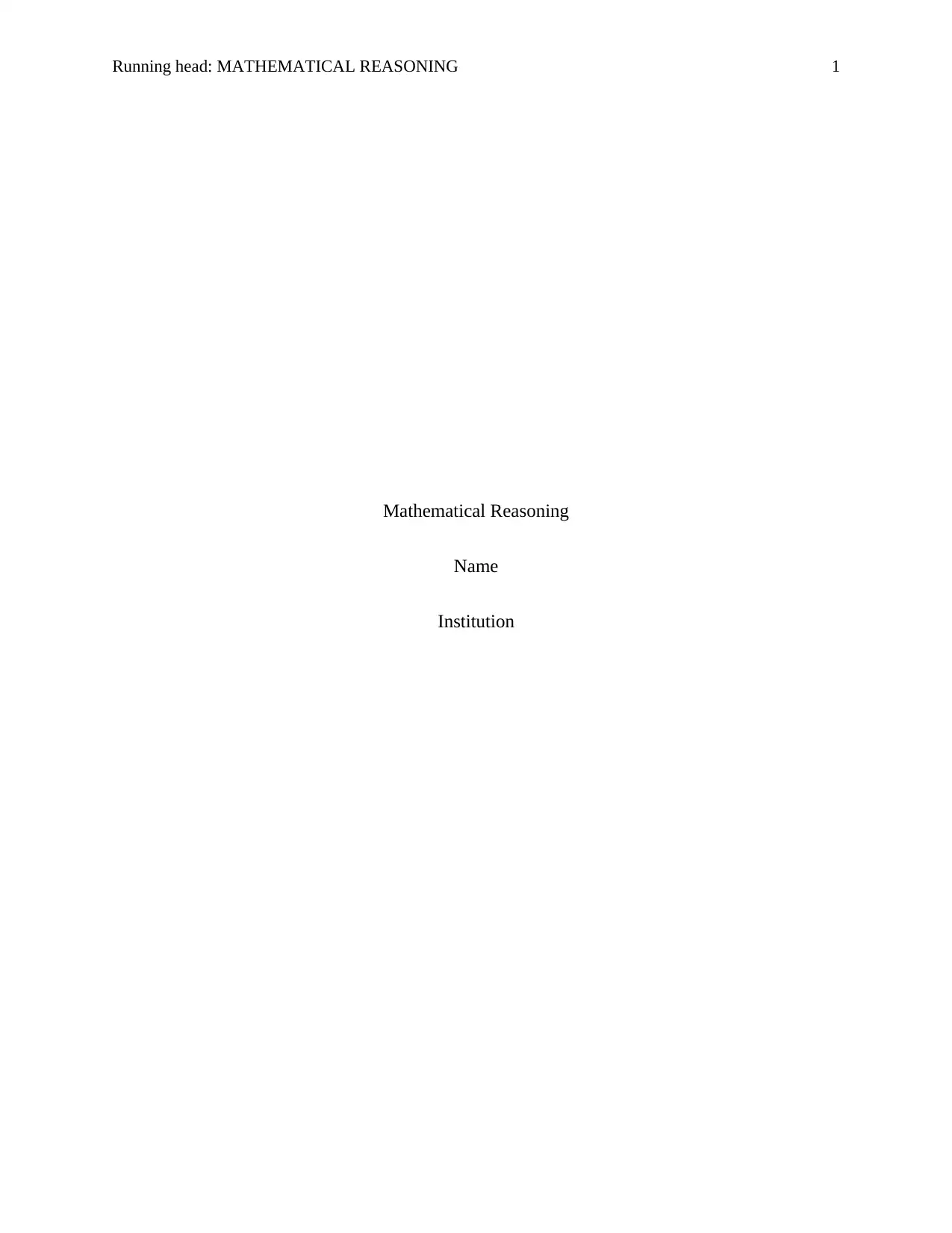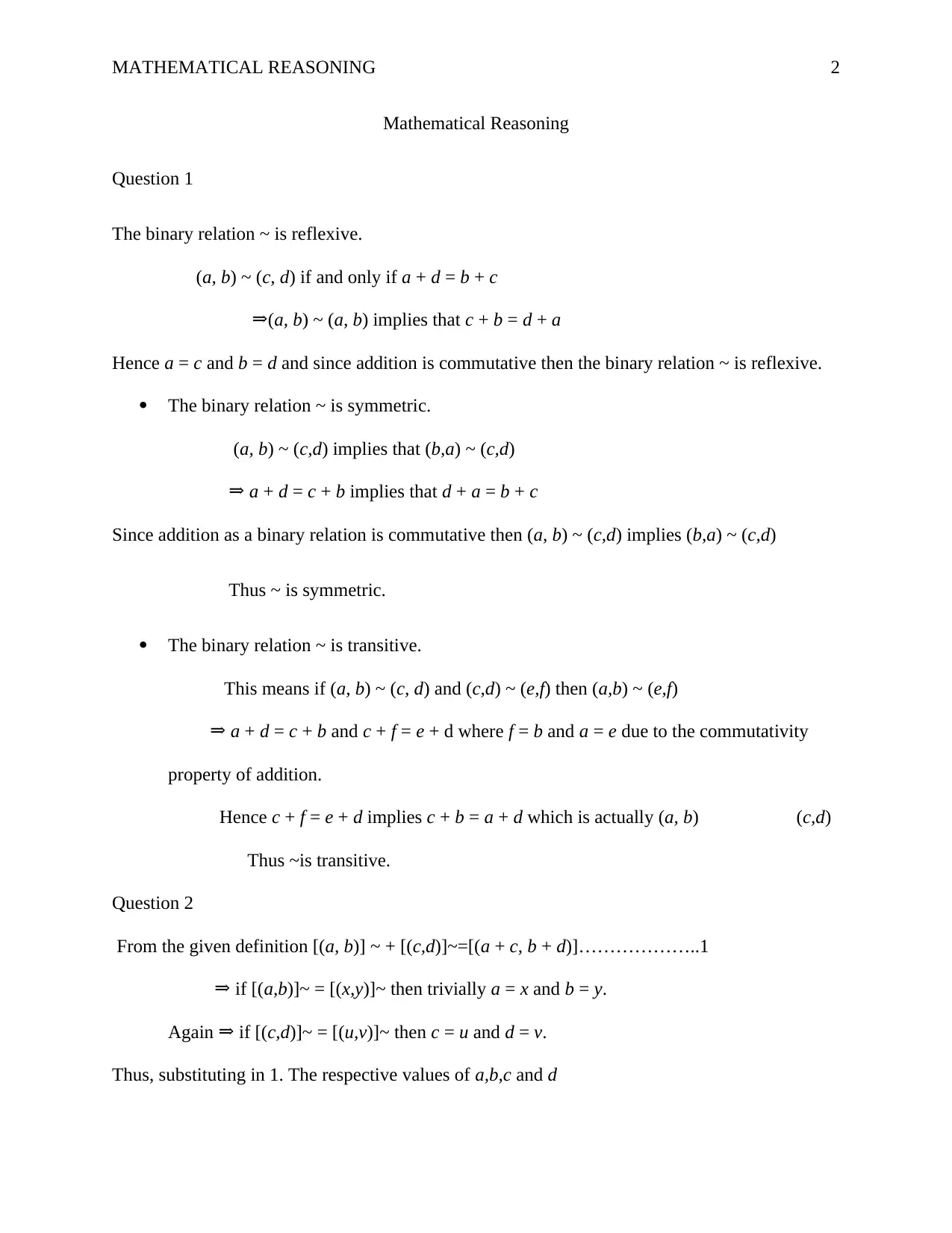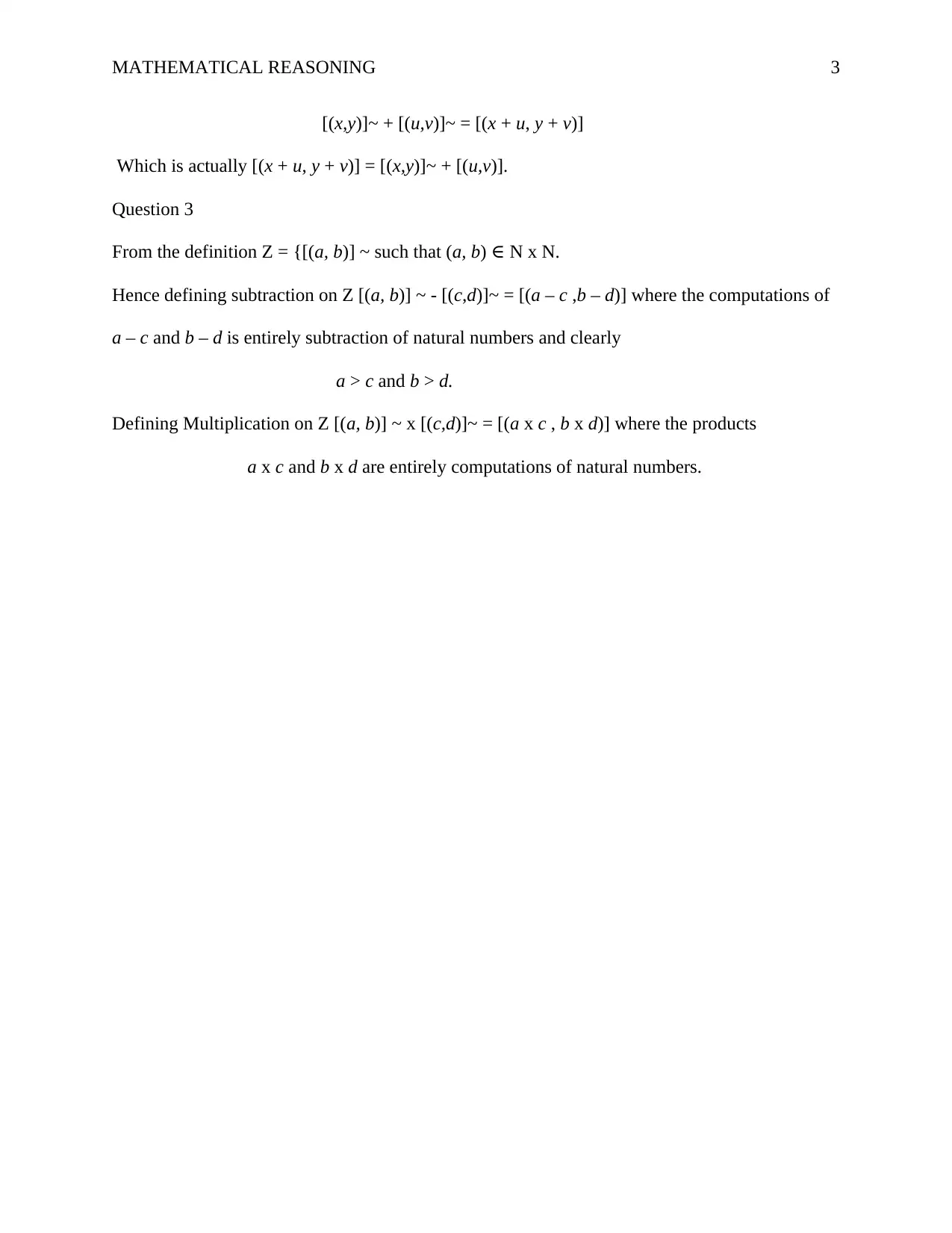Mathematical Reasoning Assignment on Binary Relations
VerifiedAdded on 2020/05/08
|3
|598
|198
Homework Assignment
AI Summary
This assignment solution delves into mathematical reasoning, focusing on binary relations and related concepts. The solution begins by examining the properties of binary relations, specifically addressing reflexivity, symmetry, and transitivity. The assignment then explores operations within the context of these relations, defining addition and demonstrating how it functions within the given framework. Further, it defines subtraction and multiplication within the set Z, emphasizing the computations using natural numbers. The solution provides step-by-step explanations for each problem, making it a valuable resource for students studying mathematical reasoning. The assignment also touches upon the importance of the pendulum, hinting at the broader applications of mathematical principles.
1 out of 3










![[object Object]](/_next/static/media/star-bottom.7253800d.svg)